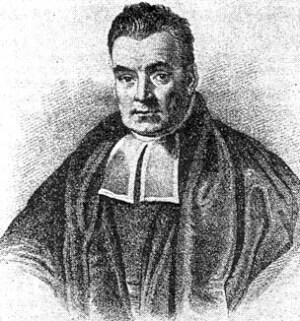by
Brendon Nafziger, DOTmed News Associate Editor | April 29, 2010
It might be the only 200-plus-year-old statistical equation with a cult following, and an engineering consulting company thinks it can help streamline clinical trials for medical devices and drugs.
Named after its discoverer, the 18th century Presbyterian minister Thomas Bayes, the Bayes theorem is a statistical method for gauging the probability that something is true. Even if you don't know what it is, you're exposed to it almost daily. It's used, for example, in your email, to recognize and filter out spam. And if you use some older versions of Microsoft Word, a Bayesian-like code was developed to determine when a talking paperclip would pop up to offer advice.
Now, there's hope that the theorem can save device makers and drug companies money by making clinical trials briefer while involving fewer subjects than with traditional statistical methods.




Ad Statistics
Times Displayed: 45175
Times Visited: 1385 Keep biomedical devices ready to go, so care teams can be ready to care for patients. GE HealthCare’s ReadySee™ helps overcome frustrations due to lack of network and device visibility, manual troubleshooting, and downtime.
The push comes in part from the U.S. Food and Drug Administration. In February, they published their long-awaited guidance giving medical device manufacturers the go-ahead to run clinical trials using the Bayesian method.
The problem is that Bayesian analyses tend to be slightly more complex than with traditional statistics, which is where Cambridge Consultants steps in.
A division of Altran, with its UK headquarters in Cambridge, England (true to its moniker, its U.S. office is in Cambridge, Mass.), the 50-year-old consulting company helps drug and medical device companies design medical devices and prepare for clinical trials. They also develop advanced radar systems for the defense industry, and it was in their work for signal processing that they saw the benefits of Bayesian techniques.
CONTINUAL INFERENCE
With their understanding of the method, Cambridge Consultants says it can cut costs of the most expensive part of drug or medical device development - the clinical trial. And it does this because unlike with traditional, or frequentist, statistics, it lets trial planners continually modify their trial plans as new data come in.
"The Bayesian approach considers the prior information and the trial results as part of a continual data stream, in which inferences are being updated each time new data become available. As data continue to accumulate, the uncertainty about the truth (derived from the prior distribution) decreases and predictions derived from the inference become more reliable," write Roger Sewell and Elisabeth Crowe, senior consultants at Cambridge Consultants, in their recent paper, "U.S. FDA Guidance on Using Bayesian Statistics in Medical Device Clinical Trials."

